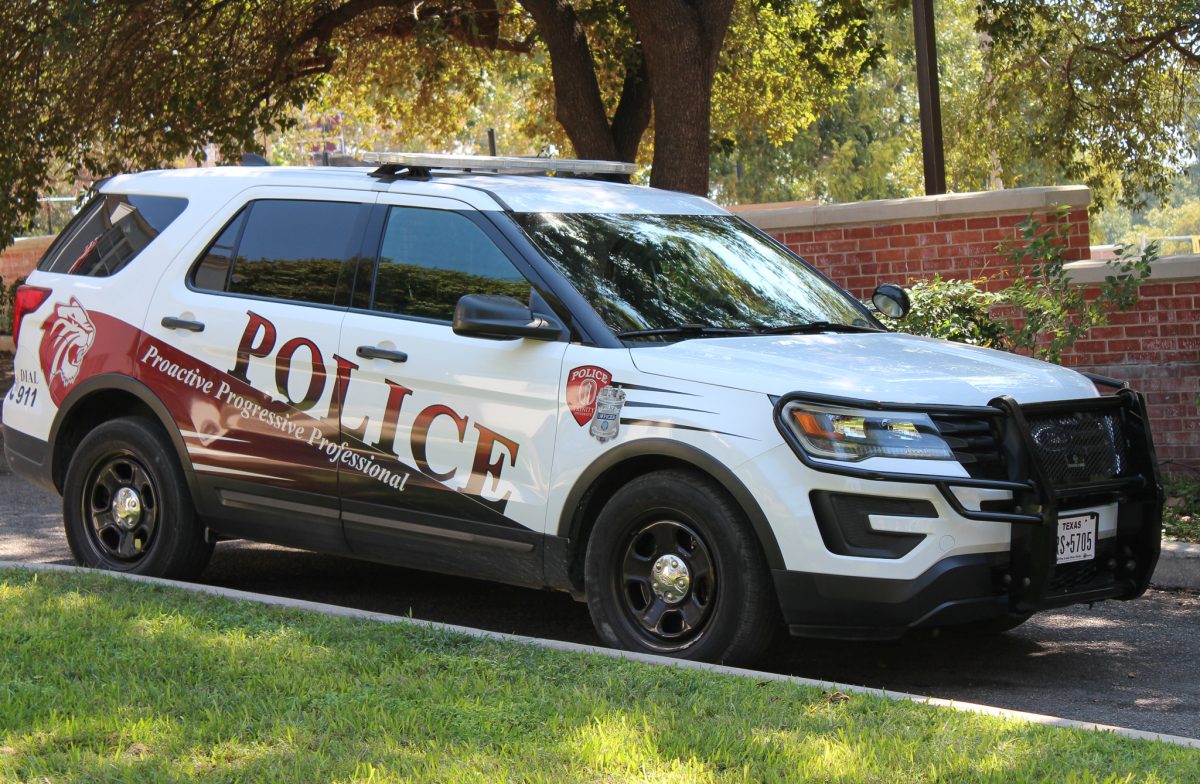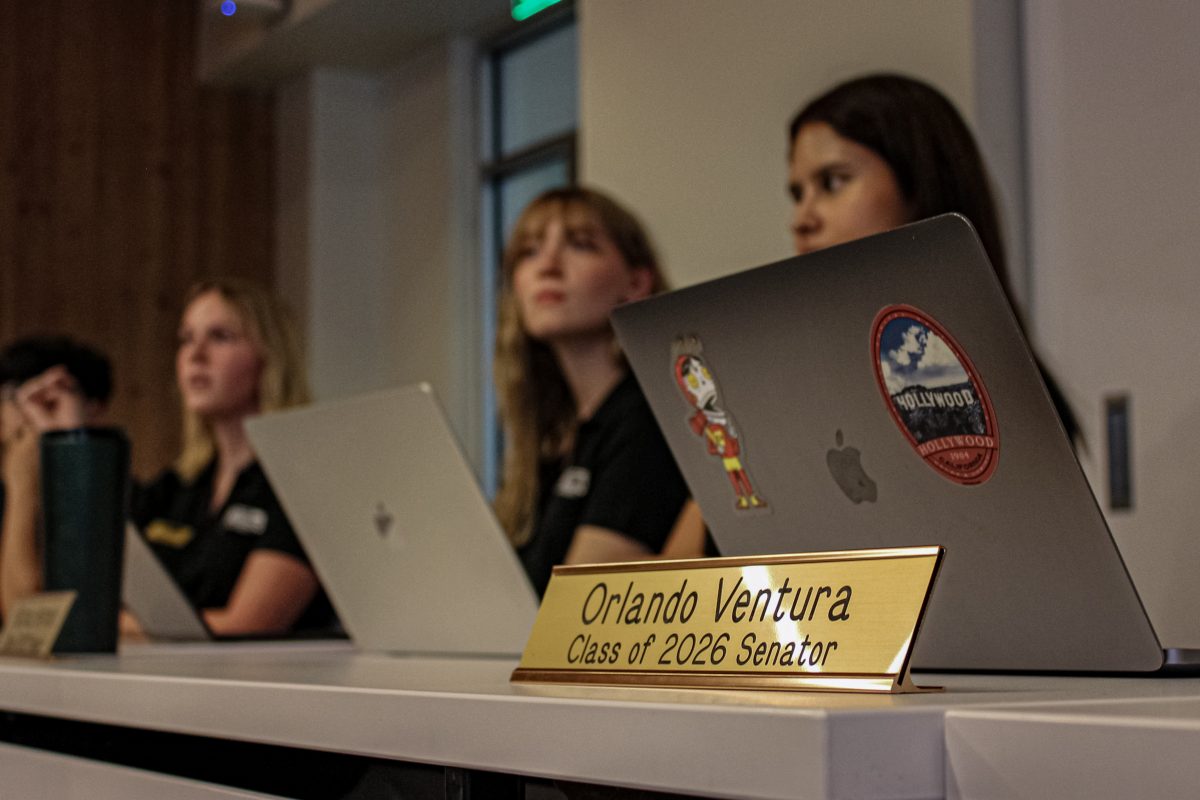National honor societies recruit Trinity students with certain GPA requirements each year, promising prestige and recognition for students’ academic achievement.
Trinity has honor societies within departments that recruit students, but there are also national honor societies with chapters on campus that recruit students, such as the National Society of Collegiate Scholars (NSCS), Alpha Lambda Delta, and Phi Beta Kappa. Each society promises a variety of benefits to students once inducted including recognition, scholarships and leadership opportunities.
Sarah Iverson, associate registrar, does not release student information to third-party members like honor societies. Student educational information is protected under the Family Educational Rights and Privacy Act of 1974 (FERPA), so Trinity’s registrar cannot give out student information, including GPAs, without a student’s permission.
“The honor societies will have a staff or faculty sponsor, and that sponsor will request the information from me. But we do not release information directly to an organization. Usually what they need are student name, major and classification,” Iverson said.
With the information, the faculty sponsor can then provide the honor society with a list of students to be invited.
NSCS recruits college freshman and sophomore students with a minimum GPA of 3.4. If a student accepts and pays the $95 lifetime membership fee, the student will gain access to scholarships, service events and leadership opportunities.
Amira Nickerson, junior and president of the NSCS chapter on campus, became more involved this semester to enhance community ties between members in the chapter.
“Before we didn’t really do a lot and so I’m trying to kind of revamp the club and make it less of a national organization that you’re only involved in online and make it a club on campus where you have friends and things to do,” Nickerson said.
Steven Mandurano, marketing and scholar recruitment director for NSCS, believes attaining certification from the Association of College Honor Societies (AHCS) differentiates NSCS from other honor societies.
“I think it’s key to delineate between those who are certified as a non-profit but also certified by AHCS. It shows we provide a scholastic requirement, and we have superior standards. There are some other organizations that claim to be honor societies but really they’re just development organizations.”
NSCS offers twenty-six scholarships to their one million members. Mandurano stresses that this is not the main benefit to joining the society.
“We are not just a scholarship organization. Scholarships is one of the things we provide as a member benefit, along with the content, along with professional networking, along with the recognition, along with the campus programming and the professional development,” Mandurano said.
Alpha Lambda Delta (ALD) is a national honor society that recognizes first-year students with a minimum 3.5 GPA their first semester who are also ranked in the top twenty percent of their class. The society offers 57 scholarships to members and national dues are $25 for a lifetime membership.
Joshua Lee, junior management major and senior advisor of ALD, believes that this society offers three main benefits.
“One [benefit] is the connection, one [benefit] is the national recognition and the national scholarships that are available when you join these organizations. Students typically join because of these benefits. It’s just a nice community of students who all excelled in their classes their freshman year and it kind of rewards them to be part of this honor society,” Lee said.
Phi Beta Kappa (PBK) is another national honor society that recognizes students, usually seniors, based on their academic achievement. However, PBK’s GPA requirement, unlike NSCS and ALD, varies each year and the society also has class requirements for students to be eligible candidates.
The society collects about $100 for a lifetime membership and offers recognition as well as alumni connections.
Christina Cooley, chemistry professor and vice president of PBK’s leadership team, spoke about the requirements set by the leadership team to determine a student’s eligibility.
“It’s about being a great academic but also about having a broad training in the liberal arts. So what we do to work on those curricular requirements is that we have two major requirements to show broad training in liberal arts and sciences. One is you have to take a math class that is a little more rigorous. The other requirement is that you have a foreign language. You also have to have a minimum number of hours of coursework in the liberal arts and sciences at Trinity to get elected to the Trinity chapter,” Cooley said.
Each year, the leadership team will sift through the transcripts of students to make sure that they meet the course requirements. After this, they will take the top ten percent of the class by GPA and invite them to be members of PBK.
“What makes Phi Beta Kappa different is that it’s probably the one undergraduate accolade that you get that stays on your transcript forever. It’s one of those things that because it’s one of the most visible and most popular honor society and it has a lot of cache to it, it does stay on your record forever,” Cooley said.
Twyla Hough, director for career services, believes honor societies can benefit a student’s job prospects depending on the type of society a student joined.
“It really depends on the honor society. There’s a couple of factors in particular: how prestigious it is, like Phi Beta Kappa, or if it’s known for a particular attribute such as leadership and service or if it’s an active chapter on campus with fundraising and events and things like that. Some of the other ones have had opportunities where they’ve done a lot of service things but unfortunately they’re not always consistent it really depends on the student membership,” Hough said.
Hough thinks honor societies are only beneficial if the student is active in the organization.
“I actually don’t recommend that students join a national honor society solely for the purpose of putting it on their resume. A lot of times Trinity students are so involved in a bunch of different things that they come in here with two page resumes or one and half page resumes and the first thing we’re telling them to take off are the honor societies unless they’re actively involved in the honor society,” Hough said.








